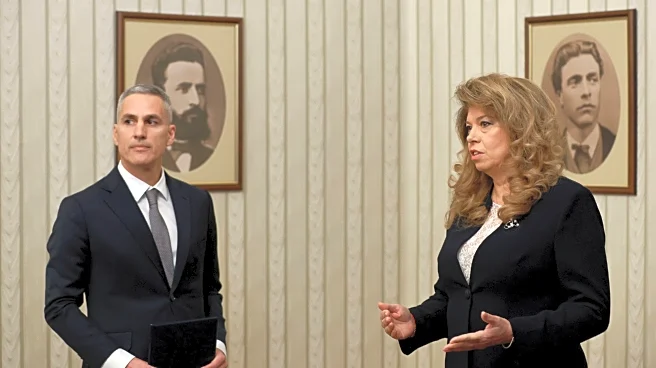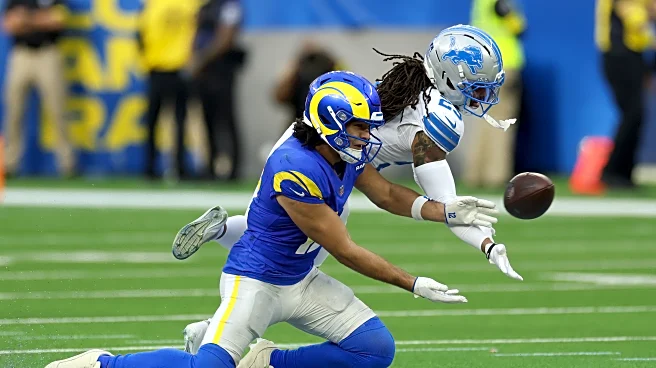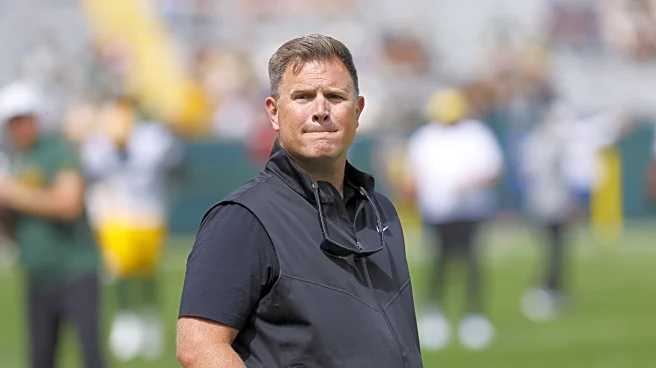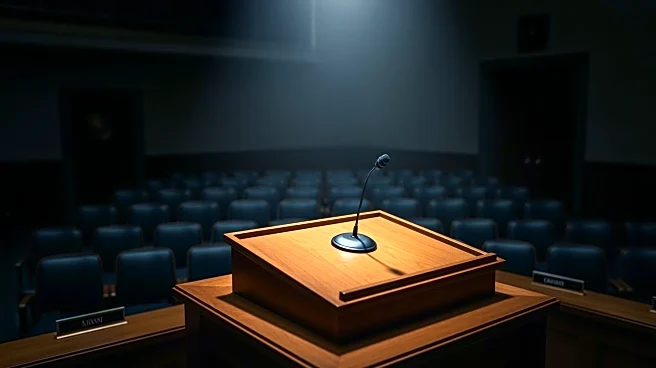What's Happening?
Saturday Night Live (SNL) is set to premiere its 51st season on October 4, with notable changes in its cast lineup. Lorne Michaels, the creator and producer of SNL, confirmed in an interview that several familiar faces will not return this fall. This decision comes after maintaining a stable cast during the show's 50th anniversary season. The 2024-25 season featured 17 cast members, including 14 full-time and three featured players. Kenan Thompson remains the longest-tenured cast member, having joined in 2003. Other veteran members include Colin Jost, Michael Che, Mikey Day, Ego Nwodim, Chloe Fineman, and Bowen Yang. Heidi Gardner, who joined in 2017, is the longest-running cast member announced to exit, having spent eight seasons on the show.
Why It's Important?
The cast changes at SNL are significant as they reflect the show's ongoing evolution and adaptation to audience expectations. SNL has been a staple in American television, influencing comedy and pop culture for decades. The departure of long-standing cast members like Heidi Gardner marks a shift that could impact the show's dynamic and comedic style. New cast members bring fresh perspectives and talents, potentially attracting new viewers and retaining existing ones. These changes are crucial for maintaining the show's relevance and appeal in a competitive entertainment landscape.
What's Next?
As SNL prepares for its 51st season, viewers can anticipate new comedic styles and sketches with the introduction of new cast members. The show's ability to reinvent itself while honoring its legacy will be tested. Fans and critics alike will be watching to see how these changes affect the show's performance and reception. The new season may also influence future casting decisions and the direction of the show's content.
Beyond the Headlines
The cast changes at SNL highlight broader trends in the entertainment industry, where long-running shows must balance tradition with innovation. This shift may also reflect changing audience demographics and preferences, as newer generations seek different comedic voices and narratives. The show's ability to adapt could serve as a model for other long-standing programs facing similar challenges.










